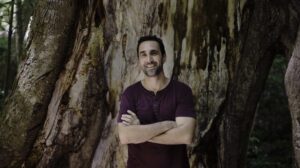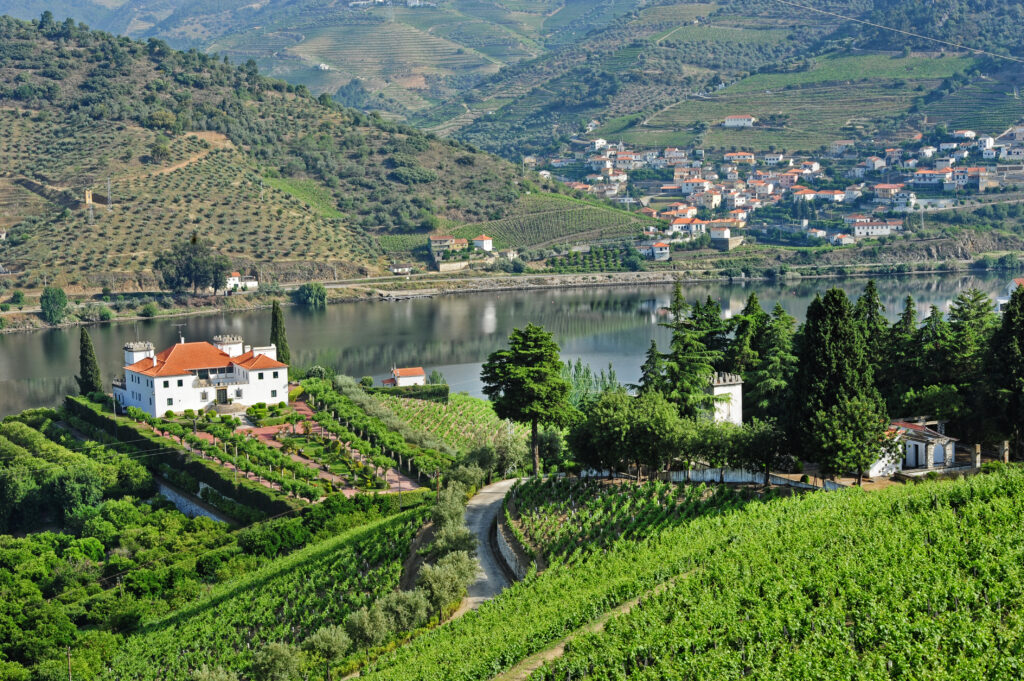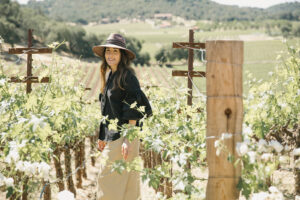
Masaya Co — Sustainable Furniture from Seed to Seat
MasayaCo is a sustainable furniture company on a mission to combat climate change through reforestation & sustainable design.
Portugal
Victoria Boorstein August 19, 2019
Many years before Aquiles de Brito was the owner and CEO of the hand-crafted soap manufacturing company Claus Porto, two German businessmen decided to create Portugal’s premier beauty and fragrance workshop. After a few years in the business, these men built a loving relationship with a trusted bookkeeper and decided to hand over their business to him. This bookkeeper was de Brito’s great grandfather and four generations later, Aquiles de Brito would inherit the CEO position at only 22 years old. He has taken on the company with poise, progressiveness and his heritage in mind. While trying to maintain both past and present, de Brito is constantly keeping his company up to date on the latest sustainable initiatives, as a way of carrying on his business into the future.
Mood of Living: Where did you grow up? Where did you go to school?
Aquiles de Brito: I grew up in Maia, in the surroundings of Porto. I lived in a family estate that had a whole farm vibe to it, which ended up molding my character. I would leave the house in the morning and come back late at night, if I could. I loved being outdoors, playing soccer with the farmer’s kids, eating fruit directly from the trees and playing with all sorts of animals. I went to school in Porto but as soon as classes were over, I’d go straight home where I belonged.
Claus Porto’s original factory building, located on Rua D. António Barroso, began construction in 1917.
MoL: Claus Porto is a business that has deep roots within your family. Who created Claus Porto, and what are its roots? How did the business influence your childhood and teenage years? Where did you live growing up?
A.B: Claus Porto was originally created in 1887 by two German businessmen who met in Porto and decided to set up Portugal’s first soap and fragrance factory. They were called Ferdinand Claus and Georges Schweder and named the company after them (Claus & Schweder). In 1903, Schweder stepped down from the company for health reasons and my great grandfather joined the company as a book-keeper. They trusted him so much that in 1908 he became a shareholder. In 1916 Ferdinand Claus left Portugal because of WW1 and two years later my great-grandfather formed his own cosmetics company called Ach Brito. When the war was over, he bought what was left of Claus & Schweder but decided to keep both identities: Claus & Schweder (later Claus Porto), a more international, luxury brand; and Ach Brito, a more affordable brand mainly focused on the domestic market.
The business had a strong influence on my life growing up. As I said, I lived in the surroundings of Porto, my grandfather (who inherited the company from my great grandfather) lived on the other side of the city and we often met halfway at Ach Brito. I loved going there, watch him work, chat with the workers, help them with their tasks… I was only a child and people loved having this little toddler walking around the premises, obviously. At the end of the day, I’d go home with my pockets full of mini soaps and a million stories to tell.
The Claus Porto factory in the 60s.
MoL: What was your first job? What did you gain from that experience? When did you start working in the family business and why?
A.B: My first job was as owner and CEO of the company! Unfortunately, I didn’t have the opportunity to learn from the bottom up as I think that everybody should. My father passed away when I was very young and when my grandfather died in 1988, it was my uncle who took over the company. But this was not what he wanted to do in life so one day he announced that he was selling it. I was in college and admit that didn’t see it coming. I was only 22 and was never raised to take over the family business. But all of a sudden, it hit me. The company bearing my family’s name was about to be sold. The place where I used to visit my grandfather and be offered soaps to take home. And felt that I had to do something. I talked to my sister and together we bought my uncle’s shares – and took over the leadership of the company. It was only on my first day on the job that I realized that I was now responsible for all those people! I had followed my heart and not my head. I was absolutely terrified but I don’t regret it – and would do it all over again.
The founding partners of Claus Porto in the early 20th century.
MoL: For readers who may not be familiar with Claus Porto, can you give a little information as to what the company is? How has the company evolved over the years?
A.B: Claus Porto (formerly Claus & Schweder, after its German founders) was the first soap and fragrance factory in Portugal. It was born in 1887 and since then every single collection, line and product that we carry is inspired by our extensive archive of hand-drawn artwork with has its roots in the rich culture of pre-republican Portugal and the aesthetics of Europe’s Belle Époque. Since the very beginning we’ve been crafting a philosophy of authenticity and an incredible portfolio of colourful hand-made labels and design patterns, each with its own unique personality. Our soaps are manually wrapped in their unique vintage labels and all our products (bath & body care products, colognes, home fragrances, lifestyle products, etc.) are still made in line with time-honored traditions, combining decades of expertise with contemporary formulas enriched with the finest ingredients. Last but not least, the sense of family is another constant in the 132-year history of the company. Proof of that is myself – the fourth generation of the Brito family – and the many families who have been working with us for generations.
Claus Porto’s flagship store in Porto, Portugal.
MoL: Is Claus Porto socially and environmentally responsible? And if so, how?
A.B: For us, at his point, both social and environmental responsibility are more of a journey than a destination. We try and support as many social causes as we can and are always trying to come up with new, more sustainable ingredients to incorporate in our formulas. Our new liquid soaps and body moisturizers, for instance, are composed of 99% natural ingredients from organic farming. This is the path that we want to take as a brand. We’re also testing a series of new, eco-friendly ingredients as we speak that will hopefully be used in the near future. But again, we’re definitely heading there but are not there yet.
MoL: How has Claus Porto’s retail experience changed to stay relevant in today’s world? What do your stores look and feel like, and are they different depending on the location?
A.B: To tell you the truth, we’re a centenary brand but it was only in 2016 (when Claus Porto was 129 years old) that we opened our first dedicated store in Lisbon. Although it was our first ever brick and mortar store, it was relatively easy to come up with from an architectural standpoint because the store used to be an old pharmacy – and the wooden cabinets that line the walls and the plaster ceiling decorated with floral motives already added character to the space. Porto was a bit more challenging, from finding the perfect spot to giving it history and soul, as it used to be a museum – and all we had to start with were plain white walls. Also, as the brand is from Porto, this should be the home of Claus Porto, the place where you’d immerse yourself in the world of the brand, which carries a huge responsibility.
But the architect (João Mendes Ribeiro, same as in Lisbon) did an amazing job and in 2017 – the year of our 130th anniversary – we opened our Flagship Store, that takes up the whole of a typical three-story 19th century Porto townhouse with 300m2. The ground floor is filled with the shop space itself, featuring a marble basin where customers can try out products and an exclusive lounge space with a vintage barber’s chair where Musgo Real fans can enjoy a luxurious traditional barber service. The whole of the middle floor is dedicated to the history of Claus Porto; and the top floor has a multifunctional space set up like an apartment, so customers can appreciate Claus Porto products in a place that resembles their home. It also serves as a product and ideas lab, with a kitchen-laboratory, a big table and a seating area with fabulous views over Porto Cathedral. This is where our monthly workshops are held: a “mini soap factory” fully equipped to reveal how Claus Porto soaps are made; a “traditional letterpress” to discover the techniques of traditional letterpress that the brand used to have on its labels; and a “scent lab” that traces a sensory journey from plant to perfume. This is because it’s our Flagship Store and also because we like to provide our consumers with experiences that are unique, authentic and engaging, building a relationship with them that goes way beyond a simple transaction.

De Brito’s estate at Quinta Dos Frades.
In 2018 we opened our first international store in New York and the biggest challenge then was respecting the brand’s history, tradition and heritage while making an entrance (after all, it’s a different country!) and adding a wow factor to this new retail space. We hired an amazing architect – Jeremy Barbour from Tacklebox Architecture – and he came to Porto to get inspired and add local relevancy to the project. That was consubstantiated – to name a few examples – in the shape of the arch that takes over the space, whose shape is inspired by Porto’s São Bento train station (that was first proposed in 1887, the same year that Claus Porto was founded), the fact that it’s made of cork, a raw material that is characteristic to Portugal, and the washbasin in the centre of the store, that was carved from the same big block of Estremoz marble that gave origin to its sister piece in Porto.
Meaning, we do adapt every store project according to its location but never give up on the brand’s DNA, which is what makes us unique – and has to be the main character of each narrative that we create, be it a store, a product, or a packaging.
The NYC store.
MoL: Claus Porto is very concerned with maintaining its heritage, from keeping its factories in Porto, Portugal, to the vintage look of the products, and the old-world methods used in the manufacturing process. Why do you believe it’s important for Claus Porto to keep its cultural roots? Are the ingredients used for the products today the same as they were in the past? Where do you source your ingredients?
A.B: That is indeed a big concern for us as, again, it’s our heritage that makes us who we are. It’s not every day that you see a brand which such an extensive archive in terms of formulas, designs and processes such as ours. We have a series of core values that define us and that remain the same since the brand’s inception in 1887: heritage, authenticity, craftsmanship, high-quality standards and a sense of family. These are the values that set us apart and we try to respect them as much as we can. Our soaps are still produced as they were decades ago and we try and source as many ingredients as we can from Portuguese suppliers. We also try to maintain the original ingredients as much as possible while innovating and coming up with new, more effective and/or sustainable raw materials. All these factors are not always easy to manage but I think that we’ve been doing it pretty well, balancing the old and the new, taking advantage of the best of both worlds!
The store in Lisbon, Portugal.
MoL: Can you talk more about the vintage graphic designs you use for your products? Who first designed these illustrations, and why do you make them?
A.B: All our labels and patterns were designed throughout the last 132 years by the designers that worked for the brand during the course of that time. They weren’t even called designers then, they were referred to as ‘commercial artists’ and their work remained anonymous in most cases, although I can still name a few. Most of our designs were created in the end of the 19th century and the beginning of the 20th one, a time when there was no limit whatsoever to the brands or their designers’ creativity. They’d hand draw everything they wanted and sky was the limit – that’s why we have such a rich, massive visual design archive to choose from. We keep these original designs in albums (containing countless original drawings of labels and patterns designed and produced over these decades) locked in safes because they’re our biggest asset and the visual inspiration behind every packaging that you see come to life at Claus Porto. And the reason why our packaging is so beautiful, rich and vibrant.
The process of making Claus Porto’s Lavender Classico soap.
MoL: How has Portugal’s culture and history influenced Claus Porto, and how does Portugal continue to influence the company today?
A.B: Portugal’s culture and history were – and still are – the biggest inspiration behind Claus Porto. If you look at the evolution of our designs, you’ll see that most of them were, again, created between the end of the 19th and the beginning of the 20th centuries. And that they reflect the reality back then: our first labels were written in French because, at the time, all fancy things came from France. Until rumor has it that a woman carrying a basket full of these labels stumbled and fell in her way to the factory exposing that the brand was Portuguese after all! During this initial period, you can see lots of monarchic symbols that are replaced by republican ones after the proclamation of the Portuguese First Republic in 1910. This is where you start seeing aesthetics change from a Belle Époque mood to a whole Années Folles, Great Gatsby vibe with touches of Bauhaus, evolving to the Art Déco period and so on. This is to say that our company is not only influenced by Portugal’s culture and history, but also by the world’s most prominent cultural and design movements. Now, same as then, Portugal is at the heart of everything we do. Our new Agua de Colonia collection, for instance, was inspired by a road trip that Lyn Harris did to find out what Portugal smells like. It reflects the scents of our country, which will always be our muse!
Production of soap on a rope, part of the Musgo Real collection for men.
MoL: How has Claus Porto helped the local community in Portugal? Do you still work with local artisans? If so, how?
A.B: The company has had a big influence in the local community since its inception in 1887. We have people working with us today whose parents, grandparents and great grandparents have also worked in the company. We have workers who were born in the company, got married to co-workers, had children who now work with us as well… It’s part of the sense of family that I was telling you about. We like to have this sense of continuity and believe that it makes a big difference, this perpetuation of the brand’s DNA. And yes, we’ve always liked working with Portuguese artisans and keep doing so, especially when it comes to packaging and window displays.
MoL: How have you influenced Claus Porto?
A.B: That is sort of a tough question! Well, when I bought the company, Claus Porto was suffering from a serious lack of brand awareness – and as there was such a huge potential to it, I felt that I had to put it under the spotlight. I partnered with an American distributor to enter the US market, helped place it in other key markets and repositioned it as a luxury brand. In short, I think that my biggest contribution was turning the page and starting a whole new chapter that served as a stepping stone to the rise of this new era of the brand.
The soap production process from start to finish.
MoL: How has Claus Porto affected your family and personal life? Are other family members working alongside you in the business?
A.B: Claus Porto has always been a big part of my life. It’s a family business and consequently it’s very hard – not to say impossible – drawing boundaries between both my personal and professional lives. My grandfather worked in the company, my uncle as well, then it was me and my sister Sónia… so it has always been a big part of our lives. My sister Sónia stepped away in the meantime and now it’s only me family-wise.
MoL: Where do you go for peace of mind?
A.B: Usually the ocean gives me instant peace of mind. I also like to go to a property that my family has in the Douro wine region – Quinta dos Frades – where we also have a wine business. It’s an amazing place that has been in the family for generations and it’s sort of my happy place.
MoL: What would be a piece of advice you would give to our readers about maintaining their heritage while staying modern?
A.B: Acknowledge, respect and cherish your heritage. Be open to making changes and evolving but never lose sight of your past and your history, as they are what makes you who you are.
A sampling of Claus Porto products.
Photography courtesy by Claus Porto, Jose Campos, Victor Machado

MasayaCo is a sustainable furniture company on a mission to combat climate change through reforestation & sustainable design.

April Gargiulo founded the sustainable skincare brand Vintner’s Daughter on principles of efficacy and sustainability.

Founder Treana Peake, supports artisan partnerships and funds development work through the Obakki Foundation.